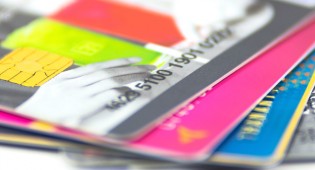Using Cash Online

YNOT EUROPE – Although some of you are probably not feeling it thanks in main to tubes and torrents, if the research companies are to believed, we are all part of a multi-billion-dollar industry whose primary billing mechanism historically has been the credit card, and more recently, the debit card.
However, if ever credit card companies were to seize the moral high ground for whatever reason, premium web content owners would have no other alternative than to source alternative billing mechanisms to turn all those bytes into bucks. Of these, phone billing is probably the most well known method. The successor of the much-maligned dialer, phone billing is powered by premium-rate numbers whose tariffs and out-payments vary from country to country.
With such billing, there are two primary mechanisms: pay-per-access (PPA) and pay-per-minute (PPM). With PPA, the ordering process creates the revenue — how much access time is granted is up to the content owner. As for PPM, immediate access to the desired content is granted for the time that the customer remains connected to a premium-rate number.
Premium Short Message Service (PSMS) is a telephony-based payment channel that can be used to charge for access to premium web content. Subscribers are charged either when they send a short-code text message to request a product (known as Mobile Originated, or MO, billing) or when they receive a product on their phone (known as Mobile Terminated, or MT, billing). PSMS revenues are shared by the content provider, aggregator and system operator. PSMS currently is supported in 28 territories across Western Europe, North America and Asia.
Whilst a raft of other alternative processors exist that facilitate anonymous payments to capitalize on the growing army of “digitally nervous” customers who are afraid to use their cards online, a credit or debit card usually is needed in order to fund their accounts.
One notable exception to this is London based UKash, whose patented solution allows end-users to pay for online content or tangibles using cash at one of more than 420,000 points of sale such as convenience stores, corner shops and post offices. After payment, users are issued a secure and unique 19-digit voucher that assures payment when presented online. Research conducted by the company has concluded that approximately 80 percent of users already have a credit or debit card but prefer the safety and anonymity afforded when paying for goods or services this way.
Clearly, cash — which is still the favoured form of payment in most countries — has not been suited as a payment method for e-commerce in the past for obvious reasons. But with such a wide and extensive network of vendors already in place who can readily convert cash to a valid e-voucher for online commerce, industry observers are predicting that such billing is set to become an increasingly popular payment mechanism with both merchants and users alike.
In an era of increasing online fraud and identity theft, the more payment options webmasters can offer prospective customers, the better. Perhaps one day such payment methods may become the primary, not secondary, methods of payments on join pages.
Marc Jarrett has been a consultant and facilitator in the pay-per-call industry since 1994 and currently works with several companies within the alternative-billing space. He may be contacted by email.
Comments are closed.





